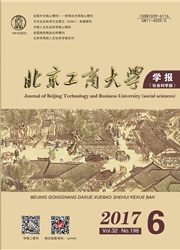

 中文摘要:
中文摘要:
文章基于交易成本理论、资源依赖理论与社会交换理论,利用问卷调查得到的制造商数据,探索了权威治理策略与投机行为之间的非线性关系。研究发现,企业不同程度地使用不同类型的权威治理策略会带来差异性的投机行为治理结果。具体表现为:企业使用权威治理策略中的强制性权力,对渠道伙伴投机行为的影响呈现出先加重后减轻的倒u型关系;企业使用权威治理策略中的非强制性权力,对渠道伙伴投机行为的影响则呈现出先减轻后加重的u型关系。企业只有高强度地使用强制性权力或低强度地使用非强制性权力才能有效控制渠道投机行为。文章结论在明晰权威治理策略与渠道投机行为之间的具体关系以及统一现有研究矛盾结论的同时,对渠道成员合理选择并使用权威治理策略制定渠道决策,规范渠道中的投机行为具有重要的意义。
 英文摘要:
英文摘要:
Based on the theories concerning transaction cost, resource dependence and social exchange, this paper studied the nonlinear relationship between authoritative governance strategies and opportunism using the data which concern manufacturers and come from questionnaires. The findings show that firms employing distinct authoritative governance strategies to different de- grees result in heterogeneous outcomes of opportunism governance. To be specific, the influence of coercive power in authoritative governance strategies on channel partner opportunism shows an inverted U-shaped feature, which means the influence is great at first, and then becomes less obvious. The influence of non-coercive power in authoritative governance strategies on channel part- ner opportunism shows a U-shaped feature, which means the influence is less obvious at first, and then becomes great. Only em- ploying coercive power intensively and employing non-coercive power less intensively can make firms effectively control channel opportunism. The conclusion of this paper clarifies the relationship between authoritative governance strategies and channel opportunism and reconciles existing research conclusions. Meanwhile it has critical managerial implications for channel members effec- tively employing authoritative strategies and making channel decision to regulate channel opportunism.
 同期刊论文项目
同期刊论文项目
 同项目期刊论文
同项目期刊论文
 期刊信息
期刊信息
